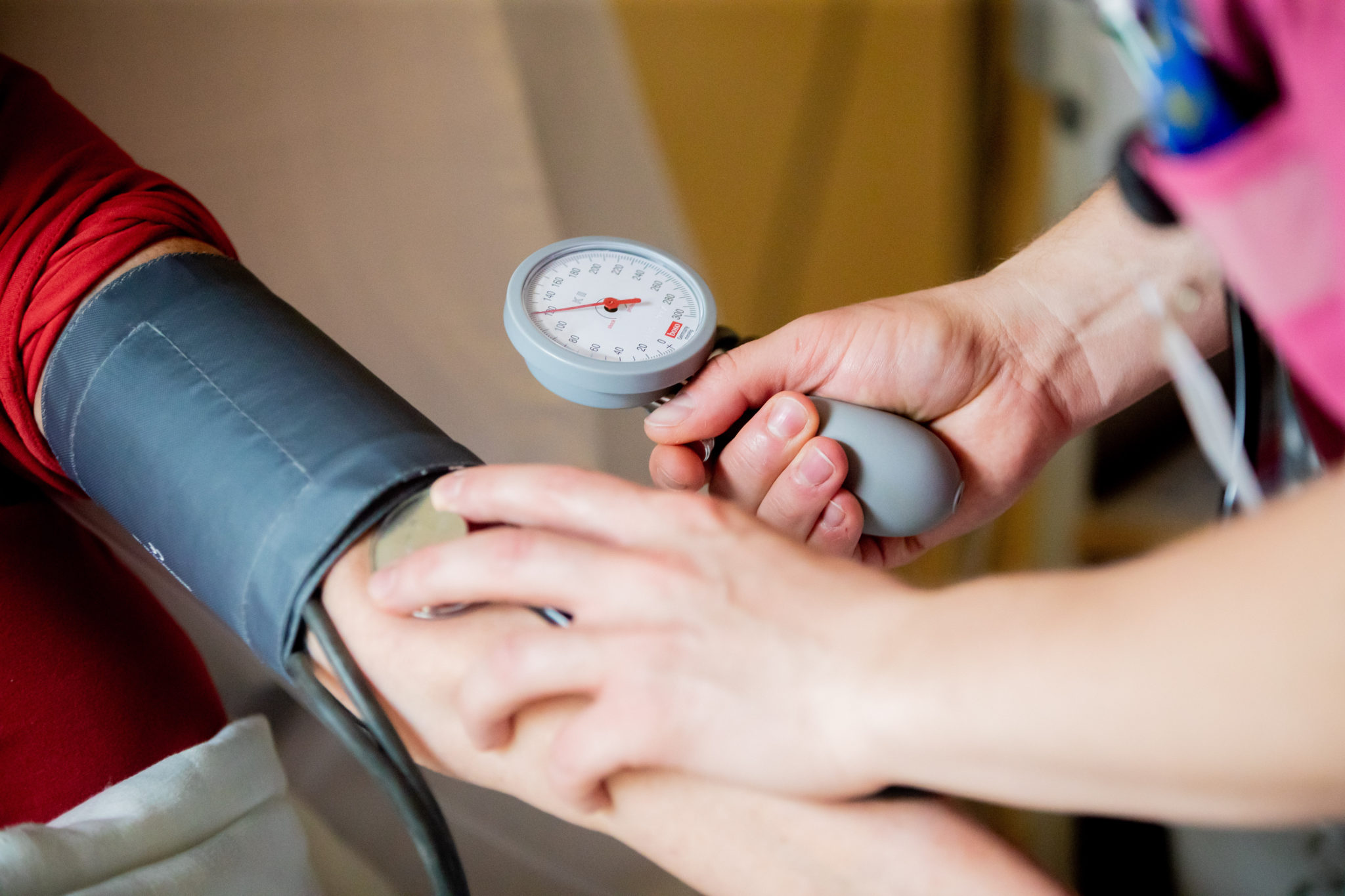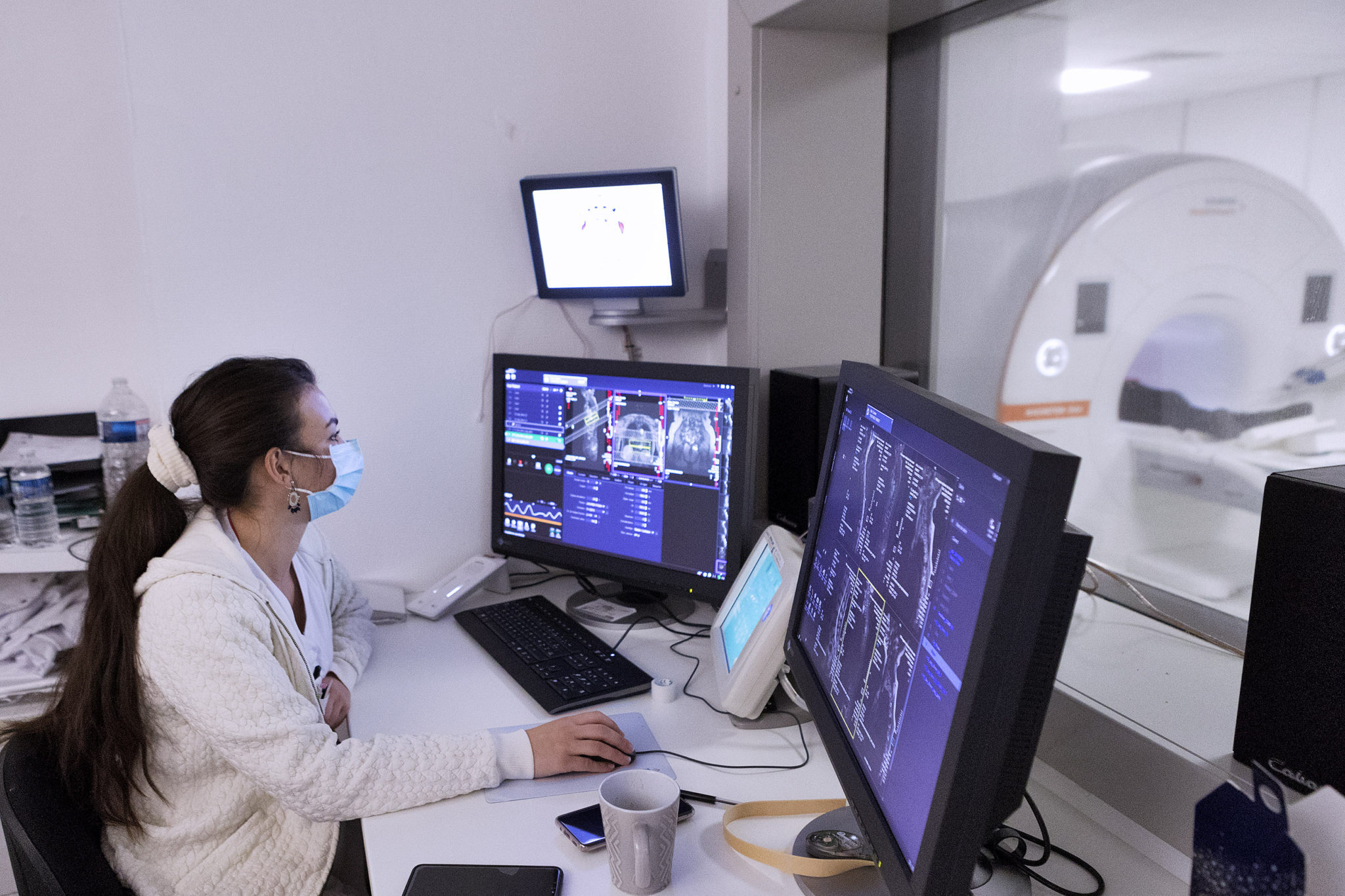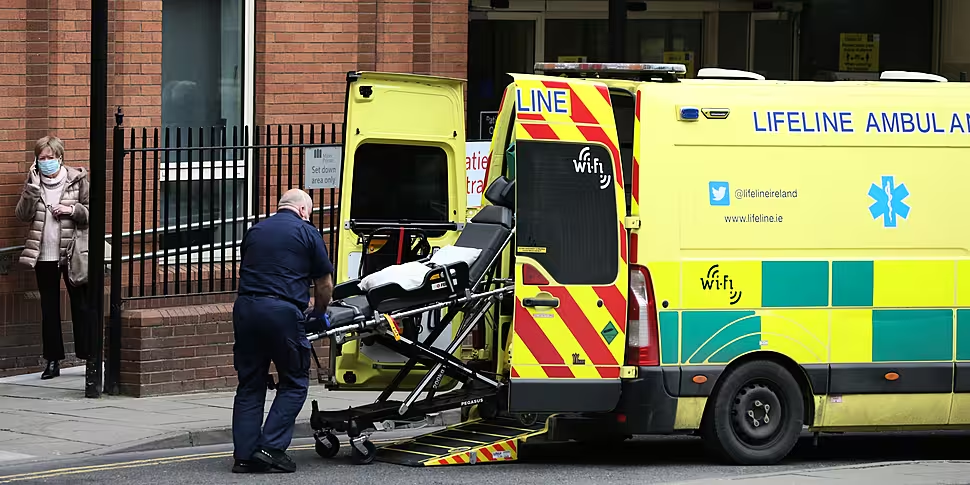The HSE says it is prioritising urgent and emergency care over the coming days as it deals with a major cyber attack that has paralysed its nationwide networks.
The health service says the ransomware attack has resulted in substantial cancellations across all outpatient services with widespread cancellation of radiology services.
However, chemotherapy and dialysis services are continuing as normal.
Staff have been told to “protect unscheduled and urgent care”, with emergency departments still open, the national ambulance operating as normal and hospitals working to contact patients who have upcoming appointments.
COVID-19 vaccination appointments are going ahead as normal but there are delays to the testing and tracing programme.
Additionally, the daily COVID-19 figures were not released yesterday and will instead be backdated and published when possible.
The HSE says slow progress is being made rebuilding its IT system and there are no indications personal patient data has been compromised.
Meanwhile, the Taoiseach said Ireland will “not be paying any ransom” to the hackers that compromised the HSE IT systems on Friday morning.
Speaking to Newstalk Breakfast with Susan Keogh, Dr Denis McCauley, Chair of the IMO GP Committee and a GP in Donegal, outlined what impact the IT shutdown is having on General Practices.
He explained that GPs use software different to that the HSE, so General Practices are "up and running" albeit with "certain caveats".
"Because of the situation in the hospitals, we've been asked to restrict certain routine diagnostic tests such as x-rays and bloods for the next few days," Dr McCauley said.
"The other issue is access to COVID assessments and COVID testing and vaccinations.
"If you have symptoms and you're worried you might have COVID, you should still contact your GP because he or she will be able to give you information about what to do.
"It is important that you ring your GP rather than going to the COVID test centre because you may not need a test but you also have a situation where you do need advice from your GP."
 File photo of a patient's blood pressure being taken. Credit: Christoph Soeder/dpa
File photo of a patient's blood pressure being taken. Credit: Christoph Soeder/dpaDr McCauley added that asymptomatic people may have to wait a day longer for a test result, while a close contact should be self-isolating for ten days regardless.
Coronavirus inoculations from GPs will continue as normal, while he understands that vaccine centres will also continue with their scheduled appointments in the coming week.
As for other health concerns, he said: "I want to reassure people that if you are ill this week, your GP will look after you.
"But if somebody wants to come in and have their cholesterol checked or have an MOT or have an x-ray, there will be a two or three-day delay in that.
"So I think from a reassurance point of view, General Practice is open, if you have an urgent or semi-urgent issue, your GP will be there to process you as normal.
"I think once you go beyond that semi-acute issue, things will be delayed a few days but I think it is important to realise we are doing this for one reason, there are very sick people who are being treated and hopefully the patients will be happy to wait a few days to that the maximum treatment can be given to the people we're really worried about."
There are and will be disruptions to our services. We will keep this page updated to let you know about any changes to HSE services. Click here for more information: https://t.co/svjMjgF7vk pic.twitter.com/qDDTOCSnef
— HSE Ireland (@HSELive) May 15, 2021
On the same programme, Dr Angie Brown, a cardiologist and Medical Director with the Irish Heart Foundation, explained what people with cardiology appointments can expect in the next few days.
"The cyber attack is of great concern as it really is causing a lot of disruption to patient care, on top of the pandemic which itself has caused a backlog of work," she said.
"This current attack is predominantly affecting outpatients but also radiology services, so that includes the cath lab.
"It does vary from hospital to hospital so it's worth checking on the HSE website because some outpatient clinics are ongoing but a lot of others have been cancelled so this is going to lead to even more extended waiting lists than we already have.
When the HSE systems were shut down on Friday, a lot of outpatient appointments were cancelled, while cath labs also had to halt their procedures, which had a big impact on cardiology patients, Dr Brown said.
"Some people are waiting a year for even a first outpatient clinic appointment so this is of great concern," she added.
 File photo. Credit: Guillaume Bonnefont/IP3 via ZUMA Press
File photo. Credit: Guillaume Bonnefont/IP3 via ZUMA Press"I think people have been anxious because of the pandemic, not coming to the hospital, waiting until they've been vaccinated, and we were coming out of that because people were being vaccinated and were coming back into the hospital, clinics were very busy.
"We were trying to have a catch up and now that's all on hold so it's really very worrying, this is a very sophisticated attack by a group of unscrupulous criminals.
"But if you do think you're having a heart attack or a stroke, please do phone 112 or 999 for an ambulance and go to the emergency department because we are still doing emergency care and that hasn't stopped."
Pharmacies
Darragh O'Loughlin, General Secretary of the Irish Pharmacy Union, added that the ransomware attack has not impacted pharmacy systems as they are independent of the HSE.
However, 'high-tech drugs', or medicines for people with serious and ongoing conditions, are prescribed through an online portal which has had to be shut down.
Instead, consultants will have to write the prescriptions which will then have to be brought into the pharmacies and ordered from the manufacturers over the phone.
"All of that can be done but it may lead to some delays," Mr O'Loughlin said.
"For pharmacists, the key priority is making sure people get their medicines.
"Where people already have a prescription, even if that prescription is out of date, it is our position that the patient should get their medicine, pharmacists should be allowed to dispense that, and the paperwork can always catch up afterwards."









